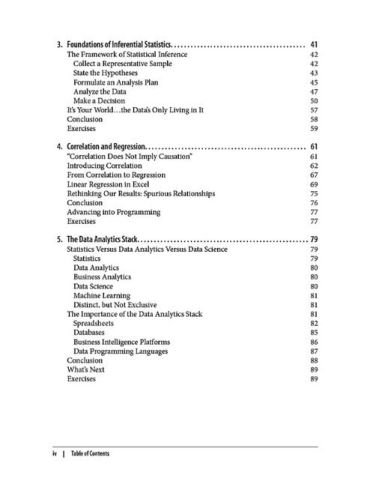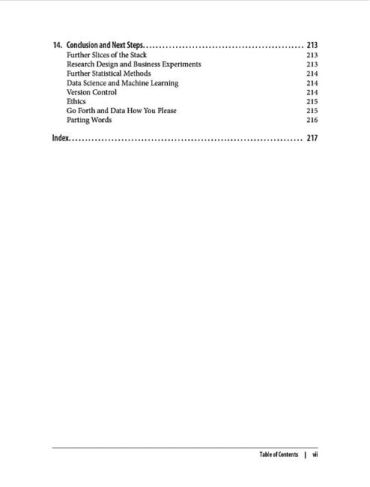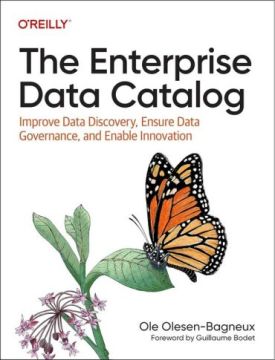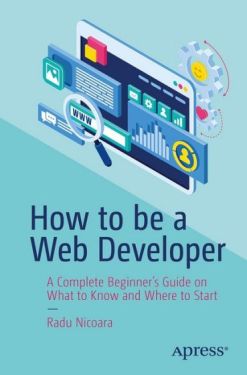Advancing into Analytics: From Excel to Python and R 20764
Data analytics may seem daunting, but if you're an experienced Excel user, you have a unique head start. With this hands-on guide, intermediate Excel users will gain a solid understanding of analytics and the data stack. By the time you complete this book, you'll be able to conduct exploratory data analysis and hypothesis testing using a programming language.
Exploring and testing relationships are core to analytics. By using the tools and frameworks in this book, you'll be well positioned to continue learning more advanced data analysis techniques. Author George Mount, founder and CEO of Stringfest Analytics, demonstrates key statistical concepts with spreadsheets, then pivots your existing knowledge about data manipulation into R and Python programming.
This practical book guides you through:
Foundations of analytics in Excel: Use Excel to test relationships between variables and build compelling demonstrations of important concepts in statistics and analytics
From Excel to R: Cleanly transfer what you've learned about working with data from Excel to R
From Excel to Python: Learn how to pivot your Excel data chops into Python and conduct a complete data analysis.
To meet these objectives, this book makes some technical and technological assumptions:
Technical requirements: I am writing this book on a Windows computer with the Office 365 version of Excel for desktop. As long as you have a paid version of Excel 2010 or greater for either Windows or Mac installed on your machine, you should be able to follow along with the majority of the instruction in this book, with some variations, particularly with PivotTables and data visualization. R and Python are both free, open source tools available for all major operating systems. I address how to install them later in the book.
Technological requirements: This book assumes no prior knowledge of R or Python; that said, it does rely on moderate knowledge of Excel to flatten that learning curve. The Excel topics you should be familiar with include the following:
Absolute, relative, and mixed cell references
Conditional logic and conditional aggregation (IF() statements, SUMIF()/SUMIFS(), and so forth)
Combining data sources (VLOOKUP(), INDEX()/MATCH(), and so forth)
Sorting, filtering, and aggregating data with PivotTables
Basic plotting (bar charts, line charts, and so forth)
- АвторGeorge Mount
- КатегоріяКомп'ютерна літератураСтатистика
- МоваАнглійська
- Рік2021
- Сторінок250
- Формат165х235 мм
- ОбкладинкаМ'яка
- Тип паперуОфсетний
- ІлюстраціїЧорно-білі


























допоможіть тим, хто ще не читав